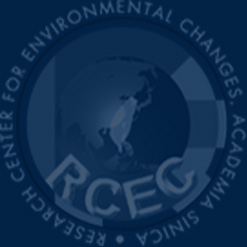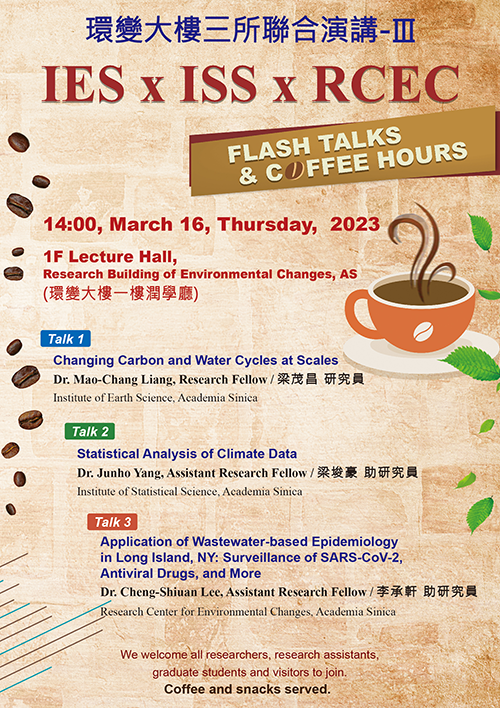

2023.03.16 14:00-16:00
環變大樓一樓潤學廳
地球所梁茂昌博士/統計所梁埈豪博士/環變中心李承軒博士

題目與摘要:
Title: Statistical Analysis of Climate Data
統計所 梁埈豪助研究員
Junho Yang, Assistant Research Fellow
Institute of Statistical Science, Academia Sinica
Abstract:
In this short talk, I will share my research work with atmospheric scientists. For many of the application problems in environmental sciences, datasets are massive and often obtained from different sources. I will briefly introduce how we tackled these two issues and show some results on the prediction of (1) precipitation near the Intertropical Convergence Zone (ITCZ) and (2) global lightning events. If time permits, I will also introduce my recent joint work with a political scientist. The “presence-only” data of the multiple groups (types) have become increasingly common in real-life applications, for example, a spatial point pattern of terrorist attacks. I will introduce the nature of this dataset and show some statistical analysis results of a bivariate point pattern of the terrorist attacks.
Title: Application of Wastewater-based Epidemiology in Long Island, NY: Surveillance of SARS-CoV-2, Antiviral Drugs, and More
環境變遷研究中心 李承軒助研究員
Cheng-Shiuan Lee, Assistant Research Fellow
Research Center for Environmental Changes, Academia Sinica
Abstract:
Wastewater-based epidemiology (WBE) is a method for obtaining population health metrics by analyzing wastewater samples that contain biomarkers (chemicals, metabolites…etc.) excreted by humans to a sewer system. In the past two decades, WBE has been utilized to estimate drug use in communities, including illicit drugs, alcohol, caffeine, and pharmaceuticals. Moreover, WBE has then further been applied to evaluate pathogens such as SARS-CoV-2 in wastewater. The generated data are population-level rather than individual-level, providing near-real-time, objective, and cost-effective information about chemical exposure and usage in communities. As the COVID-19 pandemic began in early 2020, WBE has been used worldwide to surveil levels of the SARS-CoV-2 virus in wastewater to track the spread, prevalence, and trends of COVID-19 infection in communities. WBE data can be more reliable and unbiased than clinical data, as the clinical diagnostic capacity is limited mostly to the population having symptoms, but not to all infected individuals including symptomatic, asymptomatic, pre-symptomatic, and post-symptomatic. In this talk, I will briefly introduce a project I was involved in during the pandemic regarding the application of WBE in Long Island, New York. The viral data successfully track the progress in confirmed cases over time and show the potential to serve as an early warning system to detect and prepare for future COVID-19 outbreaks, allowing for timely interventions. Additional measurements of antiviral drugs and common over-the-counter and prescription pharmaceuticals were performed in wastewater simultaneously, which can strengthen and complement the virus surveillance and help understand the impact of the pandemic on drug use and consumption.